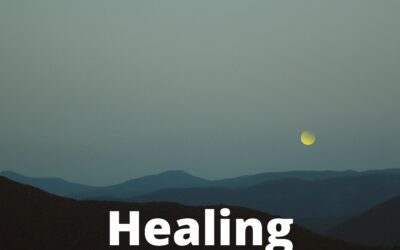
A little background..
Georgina K. Smith, PhD received her BA in psychology and minor in Neuroscience from USC and graduated with honors. She then completed her MA and Ph.D. at California School of Professional Psychology (CSPP at AIU). She is a licensed Clinical Psychologist, EMDR clinician, trauma and addiction specialist, and public speaker. She also utilizes an integrated approach with a relational and attachment-based focus that emphasizes IFS parts work, somatic and narrative work, and neurobiology.
She treats symptoms from a non-pathologizing approach, viewing them as a response to trauma and an attempt to cope. Dr. Smith has worked in many diverse treatment settings, including Didi Hirsch, the Children’s Hospital of Oklahoma’s Center on Child Abuse and Neglect, the Institute for Girls’ Development in Pasadena, and dual diagnosis residential treatment centers throughout Los Angeles. She is currently the clinical consultant for Connections in Recovery, maintains a full-time private practice in Santa Monica, and is the founder of Revolve Recovery, a groundbreaking community conscious trauma and addiction intensive outpatient center in Marina Del Rey.
In 2018 Dr. Smith received the “Sylvia Fogelman Founder’s Award” from the foster care and adoption agency Extraordinary Families for her selfless parenting, desire and action to keep siblings together, and her role as an Ambassador for Extraordinary Families.
*Outside of her career pursuits, Dr. Smith is focused on raising her 2 children (her source of inspiration), trying to keep up with their menagerie of pets, and has a passion for equestrian sports, singing, writing, animal rescue, good coffee – or really any coffee – and travel. Her kids say she loves orcas, sea-doos, and Barbados.
Why Revolve Recovery by Dr. Georgina Smith?
My passion for treating trauma was instilled though my life experience, and when my brother passed away for reasons due to untreated trauma at 39 years old, the seed was planted within me to one day create a treatment program that was truly trauma-focused, a program that would have helped him, and a program that I would want to step in to if I needed help.
For many years I sat on this dream, slowly researching and writing out curriculum ideas, unsure how I could ever execute it and make it happen. Then at the end of 2021 when we lost my grandmother, one of the happiest places of my childhood, it was once again grief that became the catalyst to actualizing my dream and seeking purpose from pain, and meaning from loss. Then, Revolve Recovery was born.
Revolve is truly a heart and human centered place of healing, a passion project, and a movement. Revolve is a trauma-focused, community-conscious IOP focused on treating trauma from evidence-based, holistic, and relational methods with IFS and EMDR at the core of our program. Revolve utilizes an integrated approach that is attachment based and grounded in neurobiological, somatic, polyvagal, mentalization, parts work and mindfulness methods.
We teach the language of response flexibility and adapting core beliefs and approach our work with clients through a non-pathologizing lens, using compassion and curiosity to respect and understand the learned function of their symptoms. And we see every moment as a therapeutic and co-regulating opportunity, from conversations at lunch, to a moment shared in a hallway.
Revolve individualizes care through extensive pre-assessments and team collaboration, and clients are provided with intensive individual and group therapy, along with psychiatric care, and holistic and experiential modalities.
Revolve also believes in moving healing from me to we, where clients can move through our intensive outpatient treatment program and when ready are welcome to join our Grit track. Grit is a program that matches, places, and monitors clients in community volunteer programs according to their passion, purpose, and strengths, and connects them to a greater relational experience of belonging where they can contextually cultivate purpose, meaning, hope, and inspiration.
What was also important to me in creating this clinician-owned program was not only to provide an exceptional trauma treatment program, but also to provide continuing education and EMDR and IFS training to our staff (along with other modalities), so we are using the same language and consistently providing effective treatment. We also provide self-care opportunities to our staff, whether it be a sound bath, a drum circle, or some other form of acknowledgement and shared care and respect for each individual on our team. We treat acute and chronic trauma every day, and are subject to vicarious trauma, so taking care of ourselves and creating a warm, kind, and co-regulating environment throughout our entire treatment family is our priority. It also helps us be more resourced and effective clinicians and is part of what makes the Revolve community and the Revolve movement so special.
COMING SOON:
Revolve Recovery is excited to announce that they will be launching a podcast and some exciting clinician led workshops in the coming weeks and months.

Dr. Smith speaks on Vicarious Trauma
Vicarious trauma is sometimes mistaken as burnout, and while it may contribute to burnout, it is different. It is defined by the Vicarious Trauma Institute as the “indirect exposure to trauma through a first-hand account or narrative of a traumatic event”, and The American Counseling Association discusses vicarious trauma as the “emotional residue of exposure to traumatic stories and experiences of others through work; witnessing fear, pain, and terror that others have experienced; and a preoccupation with horrific stories told to the professional”.
Many helping and care-based professionals are exposed to traumatic content, and while anyone working with trauma can be negatively impacted by vicarious trauma, certain variables (eg. Prior individual risk factors, low self-care and community care resources; being a newer or less experienced helping professional, and more), the negative impact may cause symptoms to develop based on this exposure. Some of these vicarious trauma symptoms may impact emotional, physical, relational, behavioral, mental, and spiritual areas of their life. They may include feelings of sadness and anger for the client’s experience; hopelessness; over-identification with the client; preoccupation with the client’s story outside of work; withdrawal and avoidance; numbing; apathy; emotional dysregulation; poor boundaries, and more. And as a result of the helping professional’s inner experience of their role with the client such as their sense of responsibility and their empathic attunement, they may experience a change in their world view.
In addition, the converse may also occur, which is ‘Vicarious Resilience’. Akin to some of what we may think about regarding ‘post traumatic growth’, vicarious resilience may be the experience of increased compassion, awareness, gratitude, purpose, greater life and contextual perspective, and a greater capacity for resourcefulness, self-regulation, and self-care. Seeking support and developing and practicing healthy coping strategies, self-care practices, and maintaining healthy connections in relationships and community is critical when working with a trauma population.
If you are seeking more information or needing support, click here > for some online resources that can help.

This summer, beat the heat and elevate your beverage game with a vibrant array of non-alcoholic drinks that are as enticing to the eyes as they are to the taste buds. Whether you’re hosting a backyard barbecue, lounging by the pool, or simply looking for a healthier alternative, here are three mocktail recipes to make your summer sizzle. Grab your shakers, muddlers, and garnishes as we redefine your summer experience. Cheers to a season filled with irresistible taste sensations and cool sips that’ll keep you smiling all summer long!
Cucumber-Lemonade Mocktail
Ingredients:
- 1 paper-thin, lengthwise slice of European cucumber, for garnish
- Ice
- 1/4 teaspoon finely chopped dill, plus 1 dill sprig, for garnish
- 1 tablespoon agave syrup
- 1 tablespoon fresh lemon juice
- 1 tablespoon fresh lime juice
- 1/4 cup fresh cucumber juice (see Note)
- 1/4 cup chilled club soda
Watermelon Agua Fresca
Ingredients:
Mint Syrup
- 2 lbs fresh mint
- 4 quarts water
- 4 quarts granulated sugar
Watermelon Agua Fresca
- 17 ounces watermelon juice
- 17 ounces water
- 1/2 ounce mint syrup
- 1 ounce simple syrup
- 1 ounce lime juice
Mojito Mocktail
Ingredients:
- ¾ cup fresh lime juice (from 6 limes)
- ¾ cup simple syrup (see Tip)
- ½ cup packed fresh mint leaves
- 2 (2-inch) strips lime zest
- 4 cups ice cubes
- 2 cups sparkling water
- Lime slices and mint sprigs, for garnish

West Coast Symposium & AYAC Conference
(The Adolescent and Young Adult Collective)
What an absolutely fantastic time we had at our past conferences! We couldn’t wait to show you these cherished moments, here are some pictures we’d love to share.
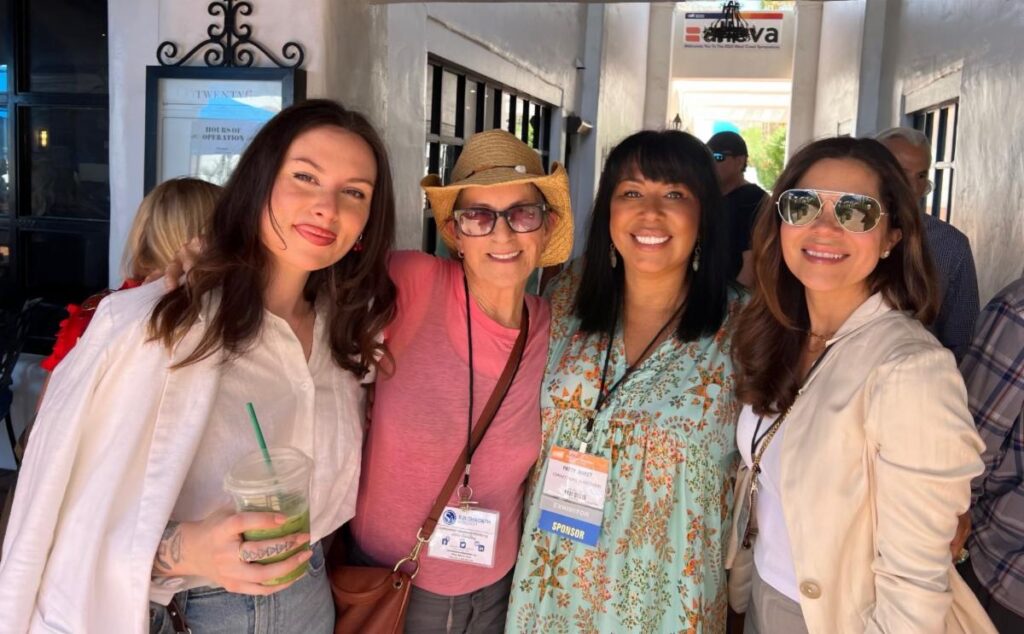
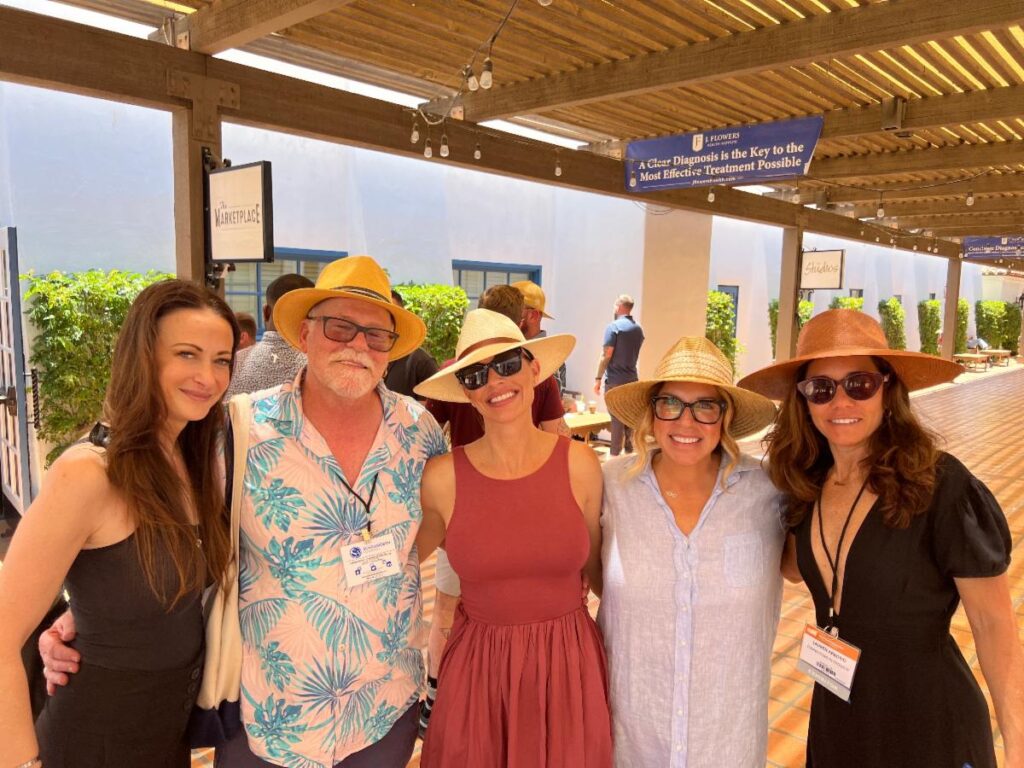
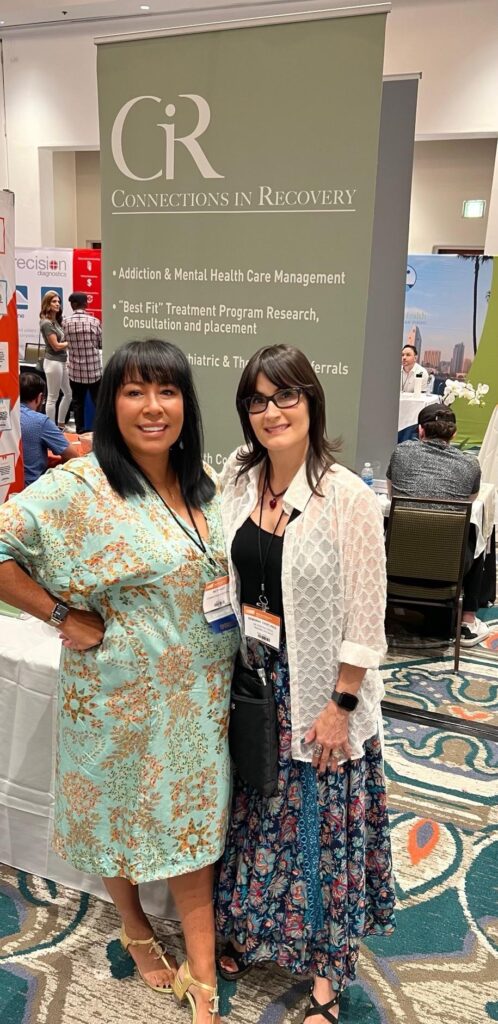
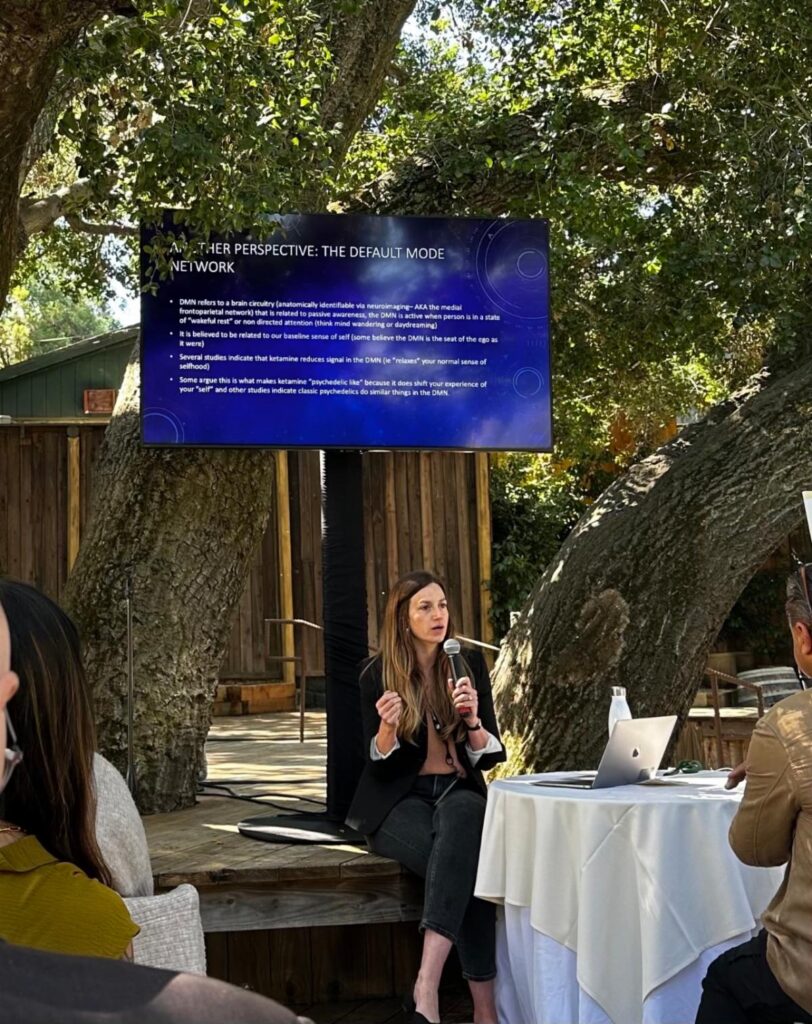
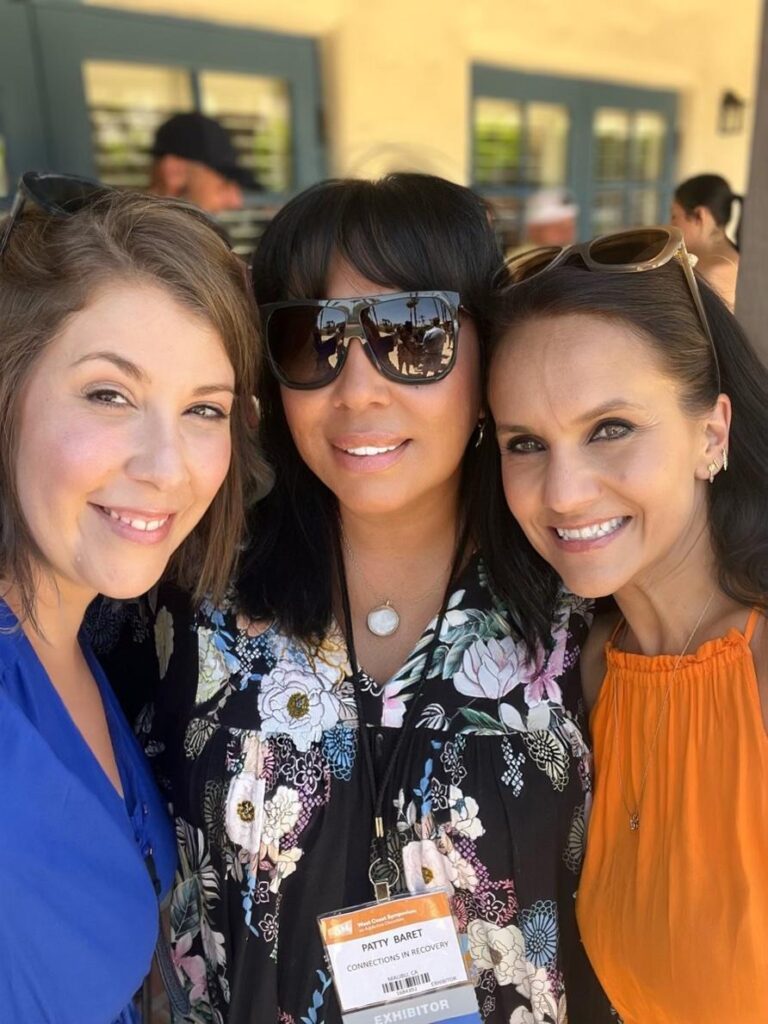

CiR Quarterly Educational Series for Recovery Companions & Coaches
It was an honor for us to co-host this series in partnership with UCLA. We extend a special appreciation to Dr. Timothy Fong, MD, Dr. Georgina Smith, Ph.D., and Dr. Lauren Casey for graciously joining us in this endeavor.
We were grateful to receive some fantastic feedback from those who attended! Your presence and participation are sincerely appreciated. Thank you all!
”I want to thank you again for inviting me to that seminar. It was so informative and actually helped me with a current coaching case I’m working with.”
-Attendee
“Thank you so much for inviting me! That was so helpful and informative.”
-Attendee
CiR connects individuals struggling with mental health and substance misuse to the best providers, recovery companions and treatment resources to support long-term positive recovery and
wellness.
WE ARE HERE TO HELP
To find out how we can help you or a loved one, or if you’re a professional looking to refer a client who can benefit from our services, please give us a call 1-888-617-1050 or send us a message.

